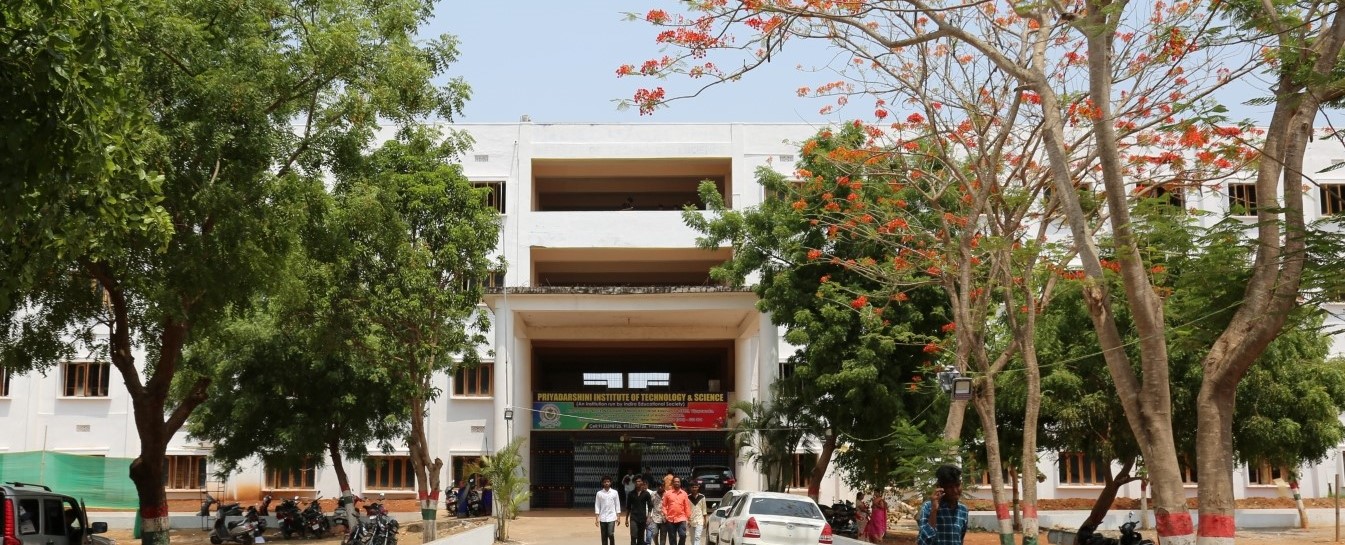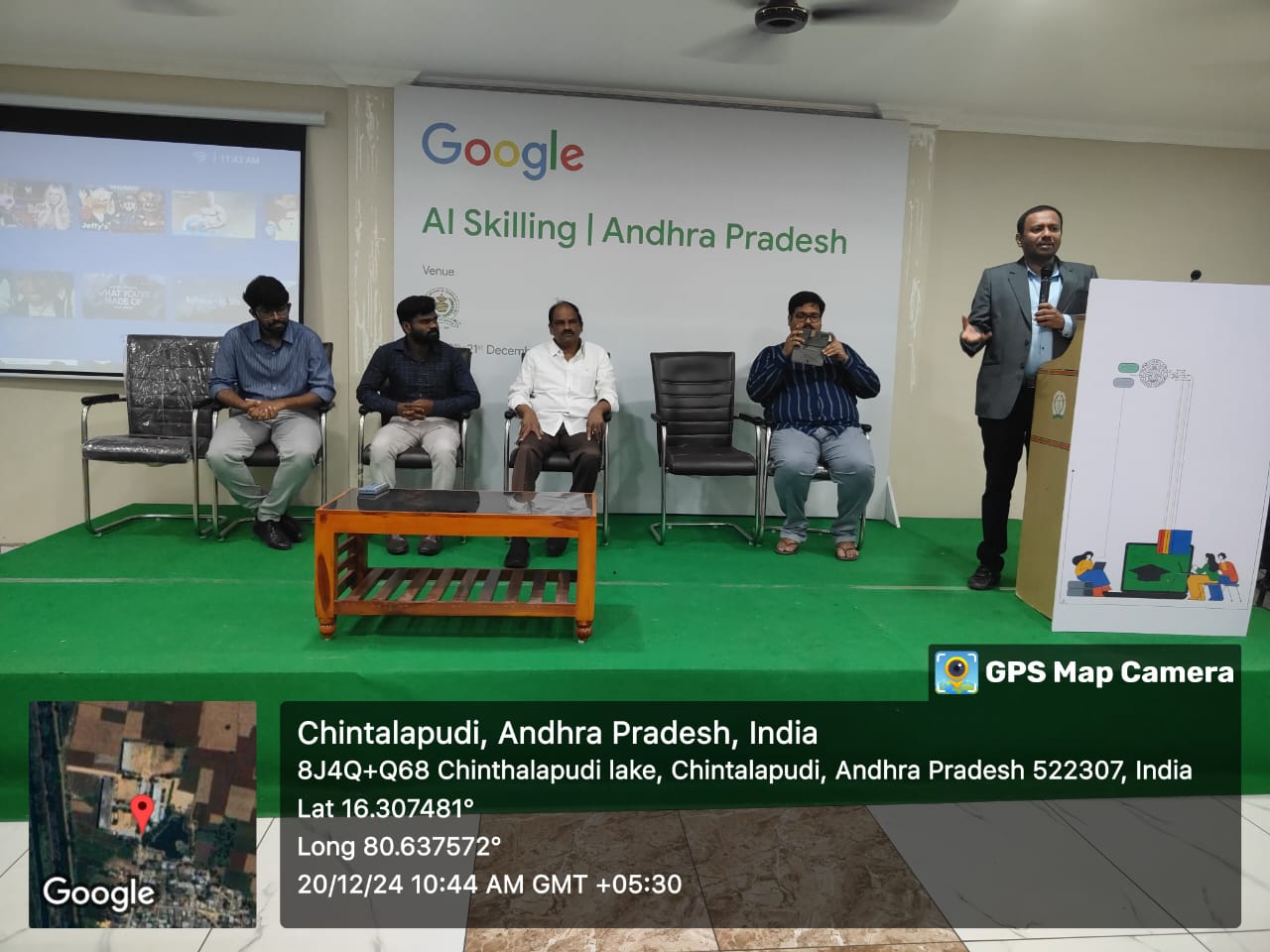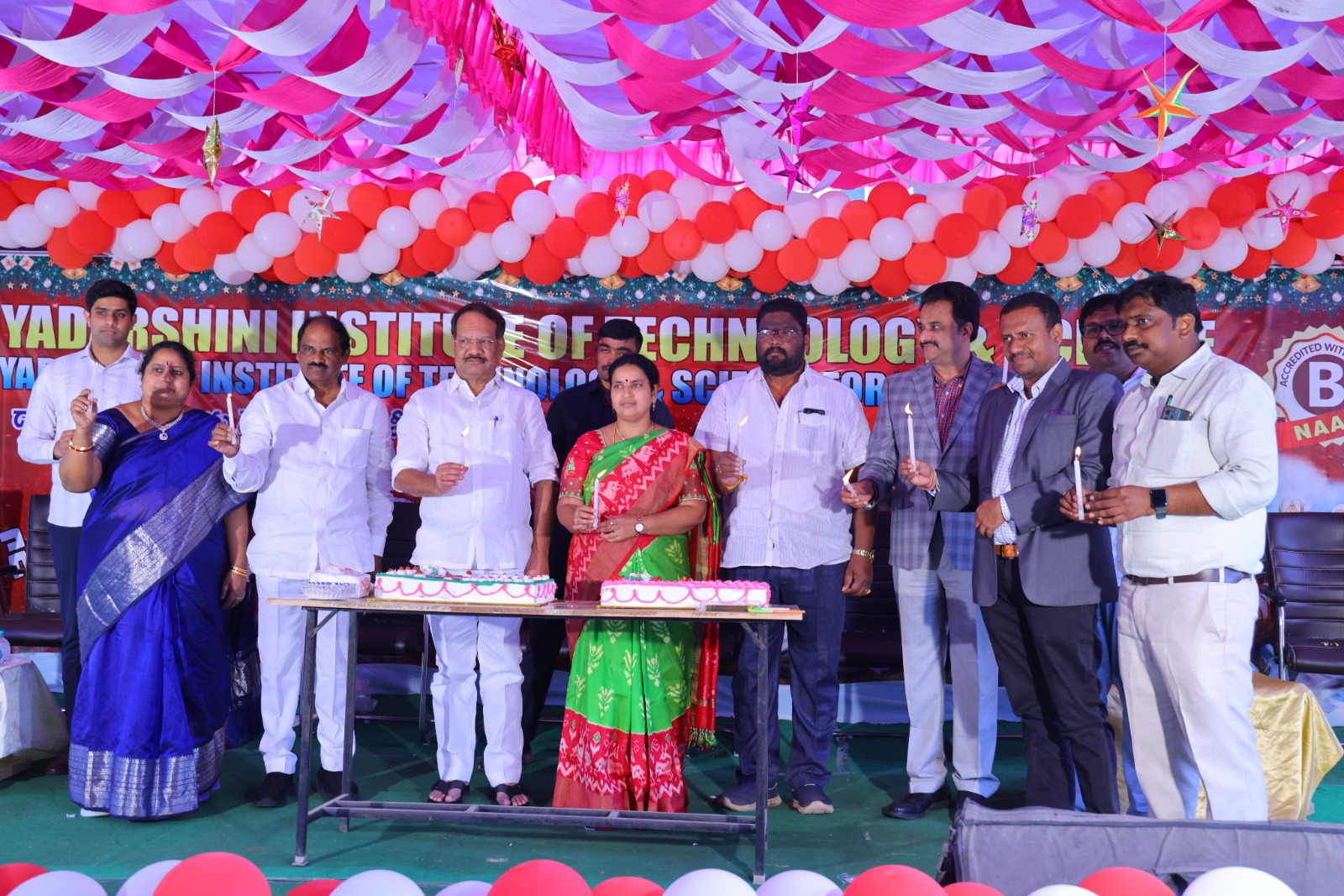ELECTRICAL AND ELECTRONICS ENGINEERING
About
Electrical and Electronics Engineering deals with the innovation, design, development and industrial applications of electrical and electronics systems, components and devices. There is a wide variety of domains to which it applies. Among the most the well-known fields, just to name a few are, Electrical Power Generation, Transmission and Distribution, Control Systems, Power Systems, Communications, Robotics, Electronics and Nanotechnology.
The Department of Electrical And Electronics Engineering (EEE) Program was started in the year of 2007 with an intake of 60 affiliated to JNTUK and the department has one post graduation course (M. Tech) in Power Systems with an annual intake of 18 affiliated to JNTUK which was started in the year 2013. The department has well equipped laboratories with standard quality equipments. The department is catering to the needs of the industry by training students to make valuable contribution. The Department is endeavoring to produce highly trained and capable engineers, who can take up the challenges of the real world. The Department focuses on uncompromising academic standards in imparting both theoretical and practical instructions with a view to prepare professional engineers.
The Department is headed by Mr. M. SivaNageswara Rao, having 08 years of experience in Teaching. There are 1 Professor, 2 Associate Professors and 5 Assistant Professors in the department for UG.
All the faculty members are encouraged to participate in Faculty Development Programmers, Conferences, Workshops, Publication of Research Papers and active involvement in R & D activity.
The Department develops creative thinking on concepts of Electrical Engineering to students and faculty members by providing infrastructure, innovative devices and digital library.
Vision of EEE Department
To become Centre of Excellence for Electrical and Electronics engineering education with values and ethics
Mission of EEE Department
- To attain multidisciplinary problem solving skills, social awareness and confidence required to excel in their chosen field
- To develop professional competency and technical expertise individually and through team effort thereby exhibit leadership in industry
- To create research oriented mindset and focus in fulfilling growing demands of society through mentoring and motivation
- To awake young minds to acquire knowledge continuously and learn to apply it
PROGRAM OUTCOMES
Engineering Graduates will be able to:
PO1. Engineering knowledge: Apply the knowledge of mathematics, science, engineering fundamentals, and an engineering specialization to the solution of complex engineering problems.
PO2. Problem analysis: Identify, formulate, review research literature, and analyze complex engineering problems reaching substantiated conclusions using first principles of mathematics, natural sciences, and engineering sciences.
PO3. Design/development of solutions: Design solutions for complex engineering problems and design system components or processes that meet the specified needs with appropriate consideration for the public health and safety, and the cultural, societal, and environmental considerations.
PO4. Conduct investigations of complex problems: Use research-based knowledge and research methods including design of experiments, analysis and interpretation of data, and synthesis of the information to provide valid conclusions.
PO5. Modern tool usage: Create, select, and apply appropriate techniques, resources, and modern engineering and IT tools including prediction and modeling to complex engineering activities with an understanding of the limitations.
PO6. The engineer and society: Apply reasoning informed by the contextual knowledge to assess societal, health, safety, legal and cultural issues and the consequent responsibilities relevant to the professional engineering practice.
PO7. Environment and sustainability: Understand the impact of the professional engineering solutions in societal and environmental contexts, and demonstrate the knowledge of, and need for sustainable development.
PO8. Ethics: Apply ethical principles and commit to professional ethics and responsibilities and norms of the engineering practice.
PO9. Individual and team work: Function effectively as an individual, and as a member or leader in diverse teams, and in multidisciplinary settings.
PO10. Communication: Communicate effectively on complex engineering activities with the engineering community and with society at large, such as, being able to comprehend and write effective reports and design documentation, make effective presentations, and give and receive clear instructions.
PO11. Project management and finance: Demonstrate knowledge and understanding of the engineering and management principles and apply these to one’s own work, as a member and leader in a team, to manage projects and in multidisciplinary environments.
PO12. Life-long learning: Recognize the need for, and have the preparation and ability to engage in independent and life-long learning in the broadest context of technological change
Program Educational Objectives
PEO 1: | To produce graduates with firm foundation in Electrical & Electronics engineering. |
PEO 2: | To motivate graduates to Analyze, Design, Develop, Optimize and implement electrical and electronics engineering systems with competent spirit. |
PEO 3: | To enable graduates with sufficient breadth in electrical and electronics engineering and its related fields to solve general engineer problems in an eco-friendly environment. |
PEO 4: | To make graduates with a professional outlook who can communicate effectively and interact responsibly with colleagues, Clients, Employers and society. |
PEO 5: | To prepare graduates who pursue lifelong learning and professional development including higher education. |
Program Specific Outcomes
PROGRAM SPECIFIC OUTCOMES (PSOs):
PSO 1 | The EEE Graduates will be able to Design, analyze, operate and test various Electrical Machines. |
PSO 2 | The EEE Graduates will be able to Describe and analyze the operation and control of power systems and also along with simulation, conduct load flow studies on given power system. |
PSO 3 | The EEE Graduates will be able to Explain and operate various electronics/power electronic devices/system along with conducting simulation studies on them. |
PSO 4 | The EEE Graduates will be incorporated with necessary soft skills, aptitude and technical skills to work in IT & Public sector. |
MORE ABOUT THE DEPARTMENT
S NO
1
2
3
4
5
6
7
8
9
NAME
Dr. B Veeramuthu Pandian
Sivanageswara Rao Mutluri
G. Ravi Kumar
Suresh Kumar Vakkalagadda
Padmapriya Kotha
Sambasiva Rao Yalala
T. Chaithanya
Malaprolu Sravani
Godavarty Gopayya
DESIGNATION
Professor
Associate Professor
Associate Professor
Assistant Professor
Assistant Professor
Assistant Professor
Assistant Professor
Assistant Professor
Assistant Professor
QUALIFICATION
M.Tech,Ph. D
M.Tech
M.Tech
M.Tech
M.Tech
M.Tech
M.Tech
M.Tech
M.Tech
NAME OF THEDEPARTMENT
EEE
EEE
EEE
EEE
EEE
EEE
EEE
EEE
EEE






